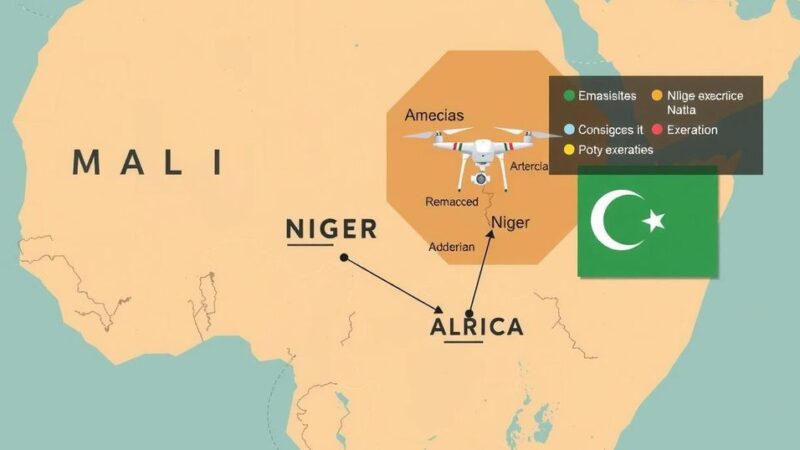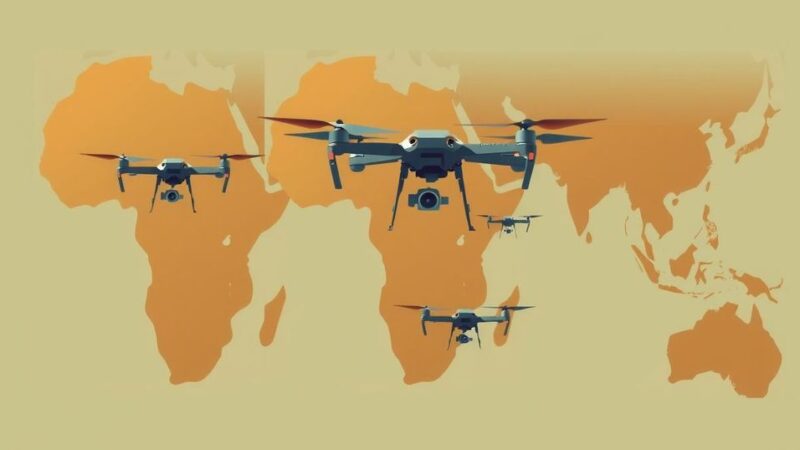Over 420,000 children in the Amazon basin are affected by severe drought impacting access to food, water, and healthcare. UNICEF calls for increased climate financing at the COP29 summit to address the crisis. The drought, linked to El Niño, exacerbates food insecurity and limits educational opportunities, necessitating urgent humanitarian aid and environmental protection measures.
According to the United Nations, more than 420,000 children in the Amazon basin are currently affected by severe drought conditions across Brazil, Colombia, and Peru. This unprecedented drought, which has persisted since last year, is contributing to alarming levels of water scarcity that severely impair the livelihoods of Indigenous and other local communities reliant on navigable waterways. UNICEF, in its report ahead of the COP29 climate change summit in Baku, Azerbaijan, highlights the urgent need for enhanced climate financing to ensure the welfare of these vulnerable children. UNICEF Executive Director Catherine Russell emphasized the gravity of the situation, stating, “We are witnessing the devastation of an essential ecosystem that families rely on, leaving many children without access to adequate food, water, health care and schools.” The agency advocates for increased global attention to mitigate the impacts of climate crises on children and future generations, recognizing that the health of the Amazon directly influences the broader health of the planet. The drought has exacerbated food insecurity, putting children at heightened risk for malnutrition and infectious diseases due to limited access to clean drinking water. In Brazil alone, over 1,700 schools and 760 medical clinics have closed or become inaccessible due to diminished river levels, while around 130 schools in Colombia had to suspend classes. UNICEF reports a critical funding requirement of $10 million to provide immediate aid, including access to water and health services, in the affected regions. Scientific agencies like NASA and the European Union’s Copernicus Climate Change Service attribute this extensive drought to the ongoing El Niño climate phenomenon, which has triggered insufficient rain and reduced river flow, thereby exacerbating forest fires and negatively impacting agricultural output across the Amazon basin. Notably, Brazil’s Environment Minister Marina Silva remains optimistic, proclaiming that environmental challenges can still be addressed, pointing out a reported 30 percent reduction in deforestation in the Amazon over the past year. Meanwhile, Colombia has documented a historic 36 percent decline in deforestation for 2023, indicating potential positive outcomes from heightened environmental protections.
The Amazon basin is facing its worst drought on record, affecting a significant number of children and disrupting essential services like education and healthcare. This situation is attributed to various climate factors, primarily linked to the El Niño phenomenon, which induces drastic changes in weather patterns, leading to reduced rainfall and heightened temperatures. The implications of these environmental changes not only harm the immediate livelihoods of those living in the region but also threaten the broader ecological balance necessary for sustaining both human and natural communities.
In conclusion, the ongoing drought in the Amazon basin poses a critical humanitarian crisis, particularly for children who lack adequate access to food, clean water, and essential services. As climate change continues to exacerbate these challenges, it is imperative that global leaders mobilize funding and resources to support affected communities. The commitment from countries to reduce deforestation must also be maintained to protect this vital ecosystem for future generations, aligning with both local and global environmental priorities.
Original Source: www.aljazeera.com






